Sound Bites - Issue #78 - October 2020 #354

October | 2020 Issue #78
Community Education's Premiere Online Magazine
On the Cover
Bridging Time & Space with Poetry
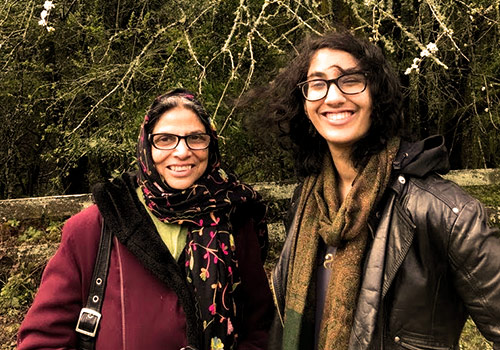 Moony and her granddaughter Zara
Moony and her granddaughter Zara
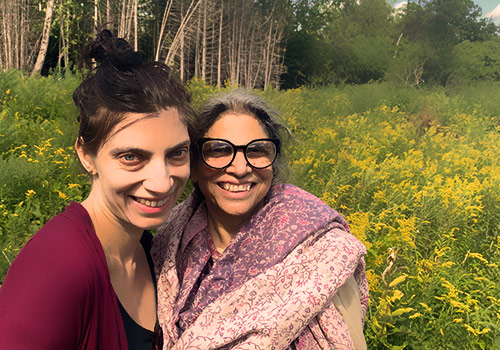 Ummni with her mother Moony.
Ummni with her mother Moony.
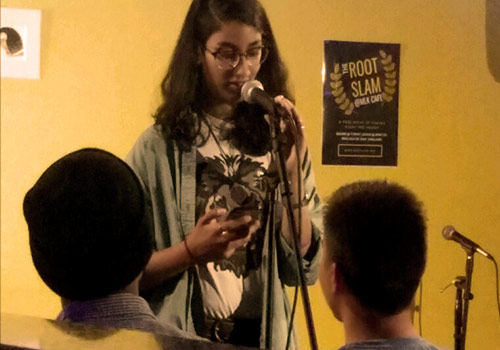 Zara at a poetry open mic in Oakland
Zara at a poetry open mic in Oakland
(NOTE: Zara Jamshed uses them/they pronouns in her speaking and writing.)
Betzi Richardson has had husbands and wives and partners and friends take her poetry class together, but never a granddaughter and grandmother -- one living in Oakland, the other in Ottawa, Canada.
And in the midst of a pandemic, where the two are separated by many miles, the online class has brought them closer to each other.
"As the only member of my family currently on the West Coast, in the midst of a global pandemic and raging wildfire, I've been missing my people, especially my Nani (grandmother) and my parents," said Zara Jamshed.
"After every class, Zara and I would have a long telephone conversation about the poetry we read in class," said Zara's grandmother Massarat Khan, who goes by her nickname Moony. "I learned about creative writing and more about my granddaughter."
Betzi, their instructor, praised both of them, saying Zara is "an extremely talented young poet" while Moony "has the benefit of a wealth of life-experience" as well as having read much poetry in Hindi, Urdu and English. Betzi has encouraged them to write a book together, at the very least a chapbook (small pamphlet type of book of poems), "as they are both writing on a publishable level."
Moony, an immigrant from India who is in her 70s , has lived in many countries around the world because of her late husband’s job with the United Nations. Zara was born and raised in New York City, the daughter of immigrants from India and Pakistan. After finishing their engineering degree three years ago, they work on California’s Solar on Multifamily Affordable Housing (SOMAH) program to increase access to clean energy for low-income renters across the state.
The poetry class was a gift from Ummni Khan, Moony’s youngest daughter and Zara’s aunt, who wanted the two of them to continue to connect on something they already loved to talk about.
"I found Betzi's class from an internet search and it seemed ideal," Ummni said. "The class was small and open to novices, like my mother, and experienced poets, like Zara. I snagged the last two spaces. The poetry with which they engaged was diverse in terms of background, styles, themes and time periods, which encouraged my mother to explore her unique voice. Through the patient support of Betzi, my mother discovered that she not only likes to read poetry, she also enjoys writing poetry. Since the class has ended, the three of us have continued to write together through video conferencing. It turns out, the class was a gift that keeps on giving!"
Zara has been writing poetry since the age of 12, but for Moony this has been a new endeavor.
"I really fell in love with it as a 15 year old when I was introduced to spoken word poetry," Zara said. "I was a frequent open-mic attendee in college and have started pursuing my poetry more actively in the past two years. In Oakland, I’ve been really lucky to become friends with semi-professional creatives who uplift and support each other, and they have really inspired me to take myself more seriously as an artist."
How Far Away From Home Are You?
By Zara Jamshed
Like, really far away. Like the width of a continent, all
three thousand rugged miles. Like a highway made of forty-two
hours, beginning and ending in ocean. Like a border
made of fences, or a country made of borders. Like shifting
time zones, my afternoon your evening, like chasing the sun
in reverse. Like there is so much corn and soy between us.
Like only the company of mountains, uphill both ways. Like two
halves of a draw bridge pulled apart, like a kiss split open. Like a
satellite falling out of orbit, in the gravity of nothing. Like a new car
turned back into a lemon at midnight. Like the last heartbeat. Like
two languages and at least one new alphabet. Like trying to grow wings.
What made you decide you wanted to take Betzi's class together?
Zara: Most of Nani’s experience with poetry is in other languages; she studied Islamic Studies in university so she has read a lot of Arabic, Persian, Hindi and Urdu poetry, and my poetry love is in English. Urdu is a very lyrical and poetic language, so I like to think that I was born into a love of poetry even if my Urdu is rocky. When the pandemic began, Nani was reading a lot of poetry and I was engaged in a more intentional writing practice and putting a manuscript together.
What is it about poetry that you like?
Zara: Poetry is the language of empathy; it really allows you to enter a new situation or experience in a way that’s clear and concise in a way that not all language is able to achieve. Especially as a queer person of color, poetry is a vessel I use to translate my worldview into images someone who doesn’t share my identity or perspective can understand. There are so many ways to be good at poetry, and I love how accessible it is. Poetry is self-determination.
Moony: You can say so much in just a few words. That's the thing. And then you remember it. If you like it, you'll remember it. Kind of like songs.
What was Betzi’s class like?
Moony: Betzi inspired me. I was not planning to write, I thought I was just there to observe and hear other people's poetry. But she encouraged me to write my own. She's a good teacher. I thought poetry has to rhyme. But not everything has to rhyme.
Zara: I hadn’t been in a poetry class since high school so it definitely took some adjusting before I felt settled in the class, but it was nice to be a part of a small community that supported each other. I enjoyed having a new prompt to inspire me every week, and I had fun helping my Nani brainstorm ideas for what she should write about. Definitely the most special part of the whole experience was being able to hear Nani read her work or to read it on her behalf. I know that she’s had a really rich life with many wondrous stories, and it was exciting to be there as she shared them with the class.
What was it like to take the class together? Do you collaborate on poems or discuss poetry together?
Zara: Each week after the class was over, I would call Nani and we’d debrief the class with my aunt. Most of the conversation would be around the themes of the poems rather than the works themselves. We talked a lot about how our experiences influence how we read or receive poetry, and the importance of telling one’s story.
Will you take Betzi's class again?
Moony: I would like this very much. Especially if Zara and I can do it together again. It's a very special way to connect. Thank you to Betzi and the school for this class. It has inspired me to keep writing and to learn more about English poetry.
Matchmaker
By Moony KhanI was a matchmaker once
I introduced two friends
She is Canadian Jewish, He is Iranian Muslim
I escorted them on dates (he was shy)
They married after not that long
She went to visit his family in Iran
Her mother warned her not to go
She had seen that movie "not without my daughter"
My friend went with her husband
She was welcomed with open arms
She traveled around Tehran
And met many Jewish people
And visited many synagogues
They told her they do not wish to move to Israel
They said they are Iranian first
One leader said that we have traveled many places
We have been offered thousands of dollars to move
To change who we are
But Iran is the best place of all
And this is home

What's Next:
Our Community to the Rescue
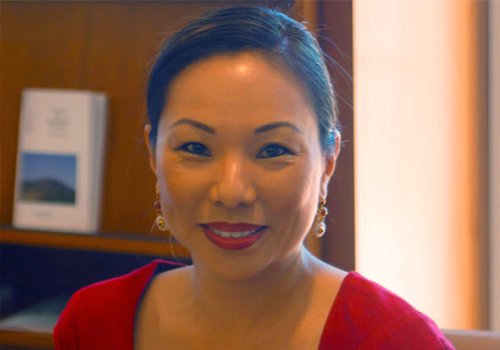
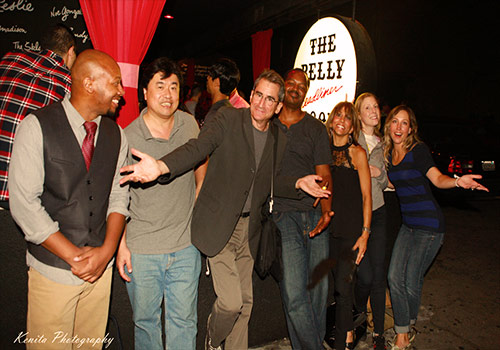 Stand Up Comedy instructor Jonathan Leigh Solomon, lifted Alice's mood.
Stand Up Comedy instructor Jonathan Leigh Solomon, lifted Alice's mood.
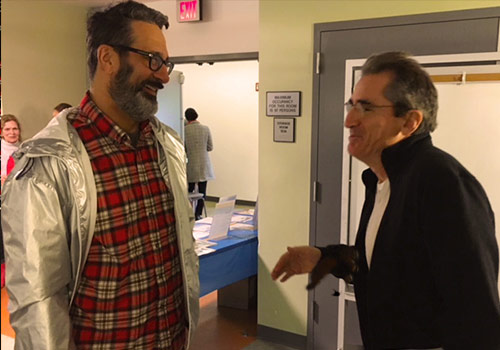 Jonathan Leigh Solomon and student Glenn Abbott
Jonathan Leigh Solomon and student Glenn Abbott
from the desk of Alice Meyering
It was one of those days. You know, the kind of day that calls to mind the children’s book and musical, "Alexander and the Horrible, Terrible, No Good, Very Bad Day."
Students were registering late for classes, students were insisting on mailing their registration after specifically told to email their registration forms, and one student demanding a refund for a class held two years ago!
But then, something wonderful happened. I was talking to our comedy writer/performance instructor Jonathan Leigh Solomon and venting a bit about how crazy the day was, and he made me feel better. He made me laugh. But not with something from his stand-up, but by sending me a famous quote from the noir L.A. author Raymond Chandler -- with a sentence of his own added:
"There was a desert wind blowing that night. It was one of those hot dry Santa Anas that come down through the mountain passes and curl your hair and make your nerves jump and your skin itch. On nights like that every booze party ends in a fight. Meek little wives feel the edge of the carving knife and study their husband’s necks. Students who dropped a class two years ago show up asking for their $99. Anything can happen."
I can’t remember if there was Santa Ana wind that day, though it’s very possible. The point is that just when you’re ready to tear your hair out in big clumps (or slit your husband’s throat), along comes a colleague who soothed my angst.
We realize we have to be there for each other. I might not see my instructors that frequently, but we are part of a community dedicated to and united by a single goal: lifelong learning. Just as I welcome the cheering on by my colleagues, I cherish the connections with and support of our students. And those connections are being strained by the coronavirus pandemic, by not being able to be physically together in our classes.
The pandemic has also shaken up Community Ed itself because of the financial ramifications of doing business in the time of the virus. But together, I’m hopeful that our students, our fans, our instructors will ensure this wonderful program’s long-term survival.
Please browse our courses on our website. If you have questions, please feel free to email us at commed@smc.edu.

Behind the Scenes:
My Friend Sally
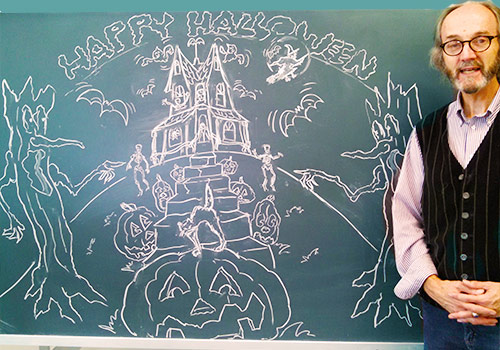 Watercolor instructor Fred Manseau had a fascinating friendship with Sally
Watercolor instructor Fred Manseau had a fascinating friendship with Sally
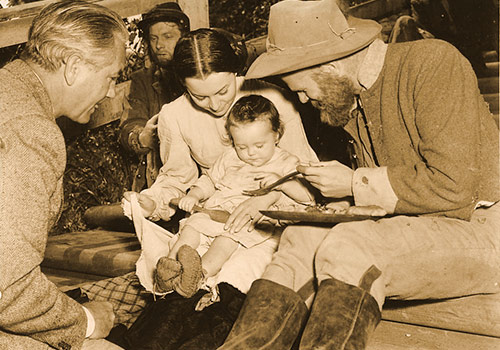 Victor Fleming, director, on the set of “Gone With The Wind” with Olivia de Haviland.
Victor Fleming, director, on the set of “Gone With The Wind” with Olivia de Haviland.
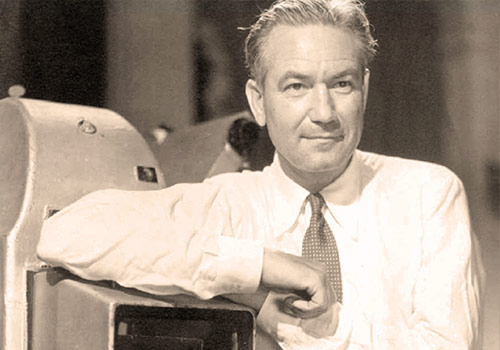 Victor Fleming, father of Sally Fleming.
Victor Fleming, father of Sally Fleming.
One of the joys of teaching at SMC Community Ed is meeting -- and sometimes befriending -- students with interesting stories. Watercolor instructor Fred Manseau tells the story of his special relationship with Sally Fleming, daughter of the award winning director of such classic films as “Gone With the Wind.
By Fred Manseau
My wonderful and fascinating friendship with Sally Fleming began when she enrolled for one of my SMC watercolor classes several years ago. Even when I first met her, I could tell that she was a very unique person, and later learned of her gifted talent in the arts.
Eventually she invited me to her lovely home just next to a beautiful golf course off of Sunset Boulevard. It was there that I first learned of her famous late father, Victor Fleming, who was best known for having directed "Gone With The Wind" and "The Wizard of Oz."
I marveled over the many family photos, not seen by the public, of her father and others who worked with him. One that stood out was a vintage photo of his taking a break alongside Clark Gable on the set of "Gone With The Wind." One day during one of my visits, she asked me to wait for a minute, and disappeared into her bedroom, emerging with a very special book in her hands, the very copy of "Gone With The Wind" that her father had referred to while making the movie. But what truly stands out to me as one of the most magical items that she had shared with me was the original copy of "The Wizard of Oz," in which all of the cast members inscribed a personal note to Sally. They also signed their names next to their cut-outs and pasted photos in costume. Judy Garland even gave Sally a dog, but not a Toto dog, it was a Cocker Spaniel.
Sally took me one day to the Academy of Motion Picture Arts And Sciences to view (with white gloves) the entire "Gone With The Wind" archive that she had so generously donated to them. There, we also studied many "Wizard of Oz" materials that went into the making of the movie, as well as countless other movies her father had made, all during the Golden Age of Hollywood. Each of my visits always included a story of her having grown up surrounded in her home by countless stars of the day, including her recollections of Clark Gable pushing her on her swing! I am currently really missing my fascinating visits with my special friend Sally, but we stay in touch until we're able to resume our magical times together.

New Perspectives:
A Giant Leap Afoot!
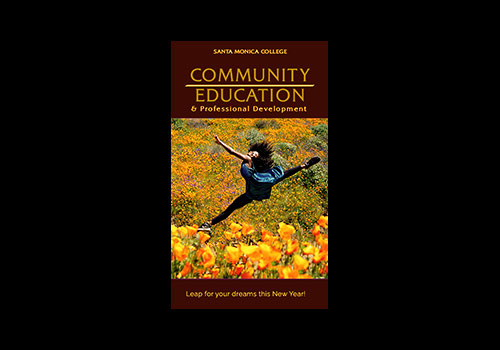
Beginning next month, changes will be made to registration and the availability of printed class schedules, SMC Community Ed announced.
The major change is that the program is scheduling the Winter and Spring sessions at the same time, and registration for both sessions will be open on mid-November, said Alice Meyering, Program Coordinator of Community Education. In the past, registration for each of the sessions was separated by about two months
In addition, to save money during the coronavirus pandemic, Community Ed will not print and mail class schedules for Winter and Spring sessions. Instead, postcards will be printed and mailed in November that have the Community Ed website on it, as well as a QR code and a promo code that offers a15% discount, Meyering said. The promo code will be good until Dec. 31, 2020, she said.
However, a PDF of the class schedule document will be posted on the website, most likely in mid-November.
Meyering also issued a reminder that all registration and classes are online in a Remote Live format, and that the only way to reach Community Ed during this phase of the pandemic is by email at commed@smc.edu, not by telephone.

 Donate Today!
Donate Today!
